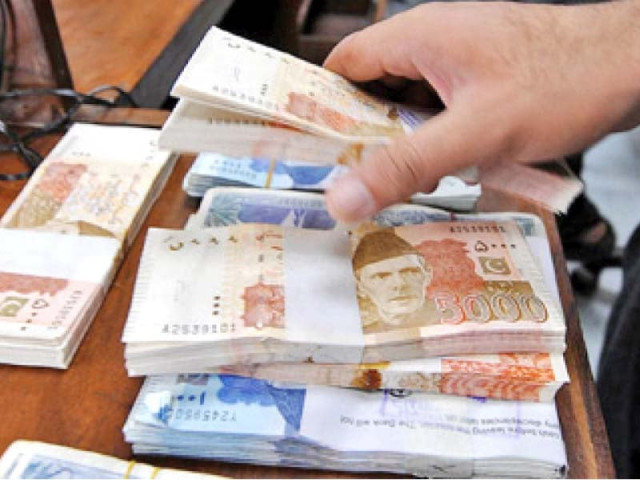Policy rate to rise due to high bond yields
Analyst says SBP may increase interest rate by one percentage point over six months

The rate of return on rupee-denominated bonds, T-bills and Pakistan Investment Bonds (PIBs) moved up sharply on Thursday, indicating that the central bank is poised to jack up the benchmark policy rate in the near future.
Bond yields surged by up to 33 basis points in the secondary market in the wake of market talk that the central bank was considering increasing the benchmark interest rate by holding an emergency meeting of Monetary Policy Committee (MPC) on the directives of the International Monetary Fund (IMF).
However, the State Bank of Pakistan (SBP) has refuted such rumours, arguing that ongoing talks with the IMF were focused on the country’s fiscal side rather than the monetary side, hence they had nothing to do with the policy rate.
“Rising bond yields suggest that the benchmark interest rate will increase by one percentage point over the next six months,” Pak-Kuwait Investment Company Head of Research Samiullah Tariq said while talking to The Express Tribune.
The central bank increased the key interest rate by 25 basis points (bps) to 7.25% in September after keeping it unchanged at 7% in the prior 15 months (July 2020 to September 2021).
Ismail Iqbal Securities, citing Bloomberg data, reported that the yield of six-month T-bills increased 33 basis points to 8.74%. Similarly, the yield of three-month T-bills surged 27 basis points to 8.18% while the rate of return on 12-month T-bills rose 14 basis points to 9.24% on Thursday.
Yields on three-month to 10-year bonds have so far surged by a total of 90 basis points to 1.4 percentage points in the current fiscal year to date, especially over the past one month since the SBP increased the interest rate by 25 bps in September.
Read Financial institutions staff must act transparently: SC
“The central bank will increase the policy rate to control high inflation and slash the ballooning import bill,” Tariq said.
The central bank is scheduled to hold the next bi-monthly monetary policy meeting on November 26.
An exorbitant surge in global prices of commodities such as petroleum products, coal, LNG and cooking oil has inflated the country’s import bill and has resulted in imported inflation in the country.
Brent, the benchmark of crude oil, has hit multi-year high of $86 per barrel in the world market compared to around $40 per barrel a few months ago.
A cut in the import bill is a must. Interest rate is a tool available with the central bank to make bank borrowing expensive, reduce circulation of money in the system and control inflation and imports.
The overheating of the economy is taking a toll on rupee which has lost 14.25% in the past five months. It hit a new all-low of Rs173.96 against the US dollar in the inter-bank market on Thursday.
To create a balance in the economy, the government and the central bank have imposed regulatory duties on import of luxury goods (like big engine cars) and non-essential items and demanded importers to make 100% import advance payment for around 114 items.
“Bond yields have surged significantly and they are expected to hover around the current levels for some time, going forward,” Tariq said.
Published in The Express Tribune, October 22nd, 2021.
Like Business on Facebook, follow @TribuneBiz on Twitter to stay informed and join in the conversation.



















COMMENTS
Comments are moderated and generally will be posted if they are on-topic and not abusive.
For more information, please see our Comments FAQ